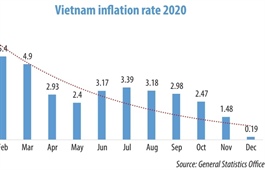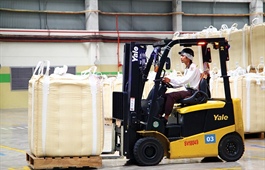Adapting through uncertainty – a survival kit for small businesses
Adapting through uncertainty – a survival kit for small businesses
The pandemic has undoubtedly motivated new behaviours, altering people’s lifestyles and the way businesses make payments as they adapt to the new normal.

Amidst the challenging times, small businesses have demonstrated their resilience and adaptability
|
COVID-19 has sparked tremendous lifestyle changes in us. Many months on, we find ourselves turning to, and being reliant on, online and digital channels to live, work, and play.
One notable trend is the accelerated shift to digital-first commerce. Consumers have quickly adopted new ways of paying that do not involve physical contact such as tapping to pay and many, including the older generation, have turned to e-commerce for daily necessities such as food and groceries.
Businesses too have had to keep up. No one is immune to these changes and particularly for small businesses, the pandemic has been disruptive to their financial health. Indeed, temporary closures of non-essential businesses and prevailing social distancing guidelines have taken their toll on small businesses.
| The perks of the Visa business payment card is that it extends beyond payments – it also provides access to additional tools and solutions to help small business owners succeed in managing various other aspects of their business. |
Amidst these challenging times, small businesses have demonstrated their resilience and adapted quickly. More than two-thirds (67 per cent) of small businesses have tried a new approach to keep their business on track since the start of COVID-19.
More than a quarter (28 per cent) have started to do targeted advertising on social media, followed by sold products or services online (27 per cent), allowed contactless payments such as mobile or tapping a card (20 per cent), and offered home delivery (20 per cent).
Notwithstanding, small businesses are confronted with fresh challenges as they find themselves unable to perform routine tasks that have kept their business running smoothly.
Benefits of digital payments are more evident
While the use of traditional payment methods such as cheques has provided small businesses with some temporary relief in terms of maintaining liquidity and improving cash flow, cheques and cash are increasingly proving to be inconvenient as temporary closures of non-essential businesses mean vendors and suppliers are unable to make trips to the bank, which could lead to delays in payments.
On the other hand, the benefits of digital payments are increasingly evident as concerns over handling cash grow. As more businesses adopt new ways of working remotely, digital payments could enable local and overseas suppliers to be paid on time, no matter where they are located.
Debunking myths about business payment cards
Many businesses are not fully utilising their business payment cards and hold to the misconception that it acts as merely a payment tool. Contrary to popular belief, a Visa business card is a finance management tool that provides businesses with better oversight and control over their working capital management.
A business payment card will allow small businesses to streamline their payments process while enjoying curated offers, cashback, and benefits. More importantly, a Visa business card can extend credit by up to 55 days, interest-free, to help improve the cash flow of small businesses.
A key concern we often hear is the lack of card acceptance by suppliers, but we believe this is fast changing given the circumstances brought about by the current pandemic. Visa Business Payment Solutions Providers (BPSP) can expand business-to-business (B2B) payment acceptance, bridging the gap between small businesses and their suppliers, making payments less of a hassle and more of a convenience.
Also, by making B2B payments digitally, small businesses can save time on reconciliation, freeing up valuable hours and minutes.
To adapt is to survive
Besides having to grapple with new ways to pay and be paid, small businesses have had to reconsider the way they run and conduct their operations, too. The perks of the Visa business payment card is that it extends beyond payments – it also provides access to additional tools and solutions to help small business owners succeed in managing various other aspects of their business.
Small businesses can increase their productivity with digital and cloud accounting platforms (for example Xero and Sage), which comes with having a Visa business card. Small businesses can also leverage special discounts and offers on e-commerce platforms such as Shopify, Boutir, and BigCommerce with their Visa business card.
In addition, small business owners get to upgrade their skills by accessing LinkedIn Learning and HBR Ascend courses, as well as online advertising platforms such as Google Ads to better identify and capture new customers online.
Visa is focused on getting small businesses back on their feet as that will be crucial towards helping economies recover.
We have thus pledged to support 10 million small businesses in the Asia-Pacific in the wake of the pandemic and have launched #WhereYouShopMatters – a campaign which rallies local communities to support local small businesses. The campaign also aggregates and makes available valuable resources on running small businesses.



























